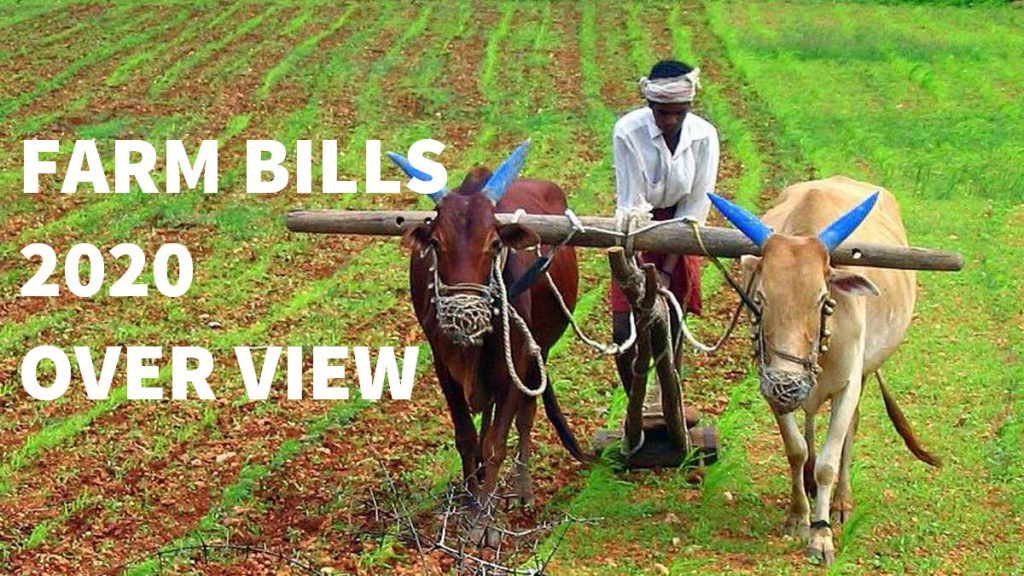Farm Bills 2020, Everything you need to know #FarmLaws2020 #FarmersProtest
- Posted on Feb 5, 2021
- |
- By Shrotriyo S
If you follow the news on television, newspaper or on the various different apps on your smartphone, you definitely have come across the Farm Bills 2020. The much debated, controversial Farm Bills 2020 which have induced nation-wide protests. The protest which have been headlining since 9th August 2020.

Farm Bills 2020 – Everything you need to know #FarmLaws2020 #FarmersProtest
The farm bills (now passed as Farm Laws 2020) were introduced by the Modi government as two agricultural ordinances. The two agricultural ordinances 2020 were promulgated by the President of India on 5th June 2020, prior to which these ordinances were approved by the union cabinet on 3rd June 2020
- The Farmers’ Produce Trade and Commerce (Promotion & Facilitation) Ordinance 2020
- The Farmers (Empowerment and Protection) Agreement on Price Assurance and Farm Services Ordinance 2020
These 2 agricultural ordinances, later became the farm bills 2020 that were passed by Lok Sabha and Rajya Sabha on 17th September & 20th September respectively to become the farm acts. An ammendment to a preexisting act was made, namely- The Essential Commodities Act 2020 (amendment) is . This is the third act constituting the Farm acts 2020
The 3 Acts under the farm Bills 2020 are as follows
- The Farmer’s Produce Trade and Commerce Promotion and Facilitation Act 2020 (FPTCPF)
- The Farmers (Empowerment and Protection) Agreement on Price Assurance and Farm Services 2020 (FAPAFS)
- The Essential Commodities (amendment) Act 2020
Now, what are the salient features of the farm bills and why is it facing the widespread, nation-wide backlash and protests from the farmers ?
Let us inspect the key provisions of each of the farm acts 2020 individually.
Key provisions of FPTCPF act(Farm Bills 2020)
Quashing APMCs
The APMC mandis or yards(Agricultural Produce Market Committee), prior to the Farm acts, were the only place where the Farmers could sell their produce at the rates fixed by the state government. The FPTCPF act permits the inter, intra-state trade of the farmer’s produce beyond the boundaries of the APMCs. The state government is barred from levying taxes in the form of market fees or cess on farmers, traders or parallel electronic trading platforms used to trade in food-crops, outside of APMCs
Probable Prospects
- Healthy Competition: The concentration of power to the APMCs have led to corruption. Reports have stated that farmers have been exploited in the APMCs all around the nation. Permitting the farm produce to be sold in the open market can lead to healthier competition and better prices for food crops.
- Inter-State Trade: The Inter-state trading could lead to the unification of the pre-existing markets in separate states. This directly boosts the Central Governments idea of “one nation one market”.
Consequences leading to Protests
- Abolishing state taxes: Restricting the state governments from imposing taxes on the farmers trading in food crops outside the APMCs is a primary reason behind the protests. A large proportion of state revenue in states like Punjab and West bengal and many other states is generated from taxes imposed on food crops. Therefore, the state governments have actively opposed the agricultural reforms
- Arhatiyas or commission agents: These are registered government agents that act as a bridge between the farmer and the APMC. The uncertain future of the APMCs with the opening of parallel accessible markets threaten the livelihood of the commission agents. These commission agents form a significant portion of the protestors.
Key provisions of the FAPAFS act(Farm Bills 2020)
Contract Farming
The new agricultural Reforms under the FAPAFS act allows the farmers to get into contract Farming. Nationwide, the farmers can sell there produce at a contractually agreed upon price and quality to private buyers before the production of food crops or rearing of the farm produce.
Minimum period of the contract: The minimum period of the contract shall be one crop season or production cycle.
Maximum period of contract: The maximum period for a contract is 5 years. A mutually decided period greater than 5 years, explicitly mentioned in the contract is also approved and legal under the Farm Acts 2020
Dispute Settlement mechanism: The judicial courts are not a part of the dispute settlement. The act provides a three tier dispute settlement mechanism comprising the Sub-Divisional Magistrate, Conciliation board and Appellate Authority.
Probable prospects
- Higher income- This could help farmers increase their profit margin. However, this would not affect the small farmers. The small farmers, in actuality sold their produce to bigger farmers, who then sold their produce to the APMCs.
Consequences leading to protests
- Foul play by the corporates: The corporates may try to trap the farmer in the legal intricacies through the contracts formed. The farmers also highlighted that the corporates may delay payments citing reasons such as substandard quality of the food crops. Therefore, pushing the farmers into the debt traps.
However, the government has highlighted the provision of the Farm acts (FAPAFS) which states the private buyer must clear their dues within three days of procurement of the food crops.
No reform for the pre-existing systems: The informal Bataidari system in Bihar and the Jotedar system in Punjab are systems of sharecropping between a landowning farmer and a tenant farmer. The farm acts 2020 have no provisions for the same.
Key Provisions of the Essential commodities Act(Farm Bills 2020)
Under this act in the agricultural reforms the government is removing certain commodities as essential. These include cereals, pulses, potatoes, onions, edible oil seeds & oils. Permitting warehousing and storage of such items. The government will regulate the supplies and prices in the cases of famine, war, high price rise or Natural calamities only.
Probable Prospects
- Higher Income: This agricultural reform will increase the overall price of the food crops. Therefore, boost the farmers income.
Probable consequences
Artificial scarcity & Higher prices: This act may lead to the artificial scarcity of essential food items. Furthermore, it may lead to inflated prices of the essential commodities in the market, which will benefit the farmers but affect the consumers.
Other important Aspects of the Farm Bills 2020(Farm acts 2020)
The state governments have openly called the farm bills 2020 (farm acts 2020) “highly centralizing”, implying the central government’s intervention unconstitutional. State governments highlight that agriculture is a state affair which falls under the State list. However, the central government can intervene due to the article 13 of the Concurrent list
The farmers have demanded a comprehensive bill on MSP, stating that the central government may not comply with MSP later. In the absence of a legal document. The farm association’s argument states that the central government is disrupting the existing structure of MSP, without a Legal guarantee. This is what Narendra Singh Tomar, the Agriculture Minister said about MSP assurance
The ninth round of reconciliation between the central government and the farmers on the farm acts, 2020 will take place on 15th January 2021.
However, the ninth round of talks led to further discord where the farmers announced the tractor rally on republic Day (26th January). Further Read – The tractor rally
- Posted on Feb 5, 2021
- |
- By Shrotriyo S
- |
- 0 Comments

Leave a Reply